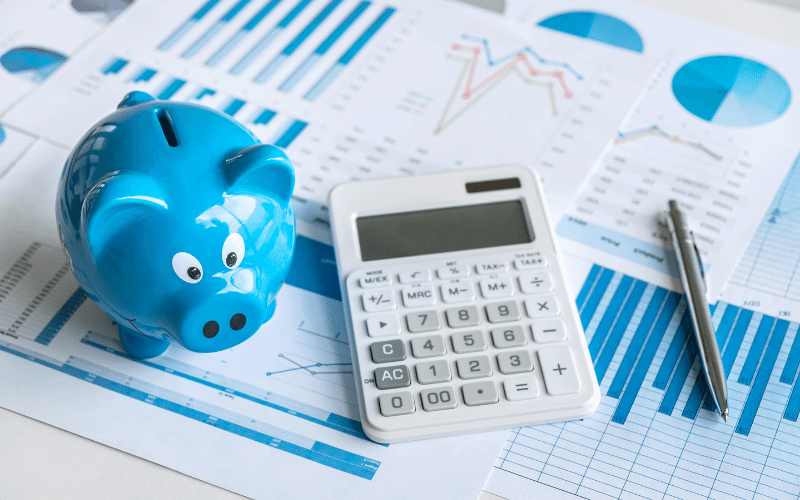It’s the age-old dilemma that puzzles business owners around the world and is a question we often receive from clients. Should you pay yourself a salary or dividends?
Whether you’re running a small company or you’re a sole contractor, it’s going to be a question you’ll have to answer. Of course, there are pro’s and con’s like anything in life but here at Ayoks Consulting, our experts have compiled all the information you need to know to make an informed decision. To begin with, if you’re running your own business you can choose to pay yourself via three different means – salary, dividends and pension contributions. Each has its own distinct benefits when it comes to tax, as well as limitations you may need to consider.
Don’t worry though, you’re not limited to using only one of the three options to pay yourself. Many directors of limited companies often put the food on their table via a combination of salary and dividends – supplemented nicely by pension contributions from the company. Of course, it has to be the right combination for your personal circumstances and is often influenced by a number of factors. These include your company’s profits, the amount you’re looking to reduce both your personal and company tax bills by and if you want to retain specific state benefits. It’s important and certainly advisable to take these into account when you’re working out the right approach for you. So, what are the ways you can take an income from your company?
Salary

Our experts at Ayoks Consulting always advise that if you’re a director, it’s definitely the right idea to at least take a small salary. There’s a large number of positives to adding your name to the company’s payroll, namely from a state benefits point of view. This is because you can accrue qualifying years towards your state pension and make higher personal pension contributions in the process. Furthermore, you can also ensure access to other areas of government aid such as maternity benefits.
On a wider note, taking a salary from your business also helps provide a further element of financial security. Ultimately, when market conditions aren’t easy and your company isn’t making a profit, you can still take a salary to keep paying your household bills. Furthermore, it also makes it easier to apply for essential things in life such as mortgages and insurance cover.
Finally, since it is deemed an allowance business expense, taking a salary is a great way to reduce the amount of corporation tax paid by your business.
Hold your horses though, taking a salary isn’t all sunshine and cocktails. The very nature of you being on the payroll as an employee is like any other – both the company and yourself will be required to pay National Insurance Contributions (NICs). It also means you’ll be paying higher rates of income tax than you would be if you received dividends.
Dividends

Dividends are usually the more tax-efficient way to form the majority of your income and are often highly favoured by directors. What are they though? According to the United Kingdom’s Government, the simple definition for a dividend is the “payment a company can make to shareholders if it has made a profit”. The profits left over after you’ve settled liabilities, including tax, can then be shared amongst the shareholders.
Of course, there is no requirement to pay all profits as dividends – indeed, many companies reinvest them into the infrastructure of the business, particularly during their formative years. When they are paid though, they’re generally distributed among directors and shareholders in accordance with the proportion of shares they own.
It’s easy to see why dividends are generally favoured among directors and make up the majority of their pay. They attract lower rates of income tax than a salary and no national insurance contributions are required. If you decide to go down the dividend route, there’s no doubt it’s possible to substantially reduce your income tax bill.
One last thing, don’t forget your tax-free dividend allowance! As of 2020/2021, the allowance is £2,000 and is in addition to your personal allowance. Add this onto your personal tax allowance and you can earn up to £14,500 before you’ll be required to pay income tax.
What is the income tax rate on dividends?
The UK Government provides an overview on how to work out the tax you’ll pay on dividends. This is split into three categories; how much tax you pay on dividends above the dividend allowance depends on your income tax band:
- Basic rate 7.5%
- Higher rate 32.5%
- Additional rate 38.1%
In order to work out your tax band, simply add your total dividend income to your other income. However, as the government website says, you may end up paying tax at more than one rate.
The beauty of dividends is that they’re subject to a much lower rate of income tax than a typical salary. Plus, you have a marginally greater tax-free allowance when you’re paid via this method.
Dividends aren’t the be-all and end-all though
Don’t put all of your eggs in one basket. While it seems that dividends are obviously the way to go, they do have their risks. First, they can only be paid out of profits so if your company has a particularly bad year, your personal income could be hit pretty hard. This makes your income entirely unpredictable – not something mortgage lenders, accountants and other financial institutions like to hear. They’re also taken after corporation tax has been deducted, unlike salaries which are seen as a tax-deductible expense. Finally, be aware that if the dividend you take isn’t covered by profits, it will be interpreted as a directors loan which you’ll need to pay back.
This is where a quality, professional accounting partner really comes into play. Qualified, experienced firms such as Ayoks Consulting can help you to declare profits and account for dividends in good time. Furthermore, we can also liaise closely with you to identify the most tax-efficient method of payment for your company and yourself. That’s not an easy task.
Pension Contributions

The third and final option is to receive pension contributions directly from your company; again, this is a rather effective form of tax-efficient remuneration. Unlike when you contribute to your pension yourself, this counts as an employer contribution.
Since they don’t add to your income, they don’t increase your tax bill and are deemed an allowable business expense, shaving off a sizable 19% off your corporation tax bill! Help yourself to another 13.8% saving too, since there are no employer national contributions to pay. Finally, employer pension contributions aren’t restricted by the size of your salary. Why is this so important? Well, when you’re an individual, you’re unable to pay more into a pension pot in twelve months than the amount you make as a salary during that period of time. So when you look at it this way, if you’re taking the small salary plus dividends approach that we detailed earlier, you can’t pay much into your pension.
Fear not! As we said before, we’re looking at this as an employer contribution. The good news for you is that employer pension contributions aren’t limited in the same way – only by the annual allowance set currently set at £40,000. So even if you are taking that small salary, your company is still able to contribute up to this amount into your pension pot.
Up to £40,000 a year into your pension sounds brilliant, doesn’t it? Just remember there is one major caveat. You can’t access it until you’re at least 55 years old. If you’re lucky enough to be a younger individual, you’ll have to wait to get your hands on this.
It’s clear that there isn’t a definite answer to if you should pay yourself a salary or dividends. It isn’t as clear cut as one or the other. The best way is to combine the two and devise a strategy to make them work to your advantage.
Our experts at Ayoks Consulting are well accomplished in this field and, as qualified professionals, can help you to find the right solution for you. Contact us today to discuss how we can help you.

